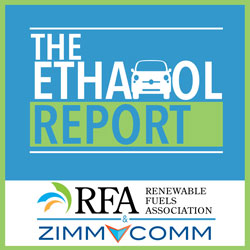 The Renewable Fuels Association (RFA) and several organizations are hosting ethanol safety seminars in Virginia this week.
The Renewable Fuels Association (RFA) and several organizations are hosting ethanol safety seminars in Virginia this week.
The ethanol safety seminars, in partnership with TRANSCAER, International Association of Fire Chiefs, and Pipeline and Hazardous Materials Safety Administration, will be held all day today, tomorrow and Wednesday in Chesapeake at the Chesapeake Public Safety Operations Building.
The ethanol safety seminar focuses on numerous important areas of ethanol safety including an introduction to ethanol and ethanol-blended fuels, chemical and physical characteristics of ethanol and hydrocarbon fuels, transportation and transfer, storage and dispensing locations, firefighting foam principles, general health and safety considerations and storage and pre-planning considerations.
The seminar is funded through an Assistance for Local Emergency Response Training (ALERT) grant, awarded by the Pipeline and Hazardous Materials Safety Administration and in partnership with the International Association of Fire Chiefs.










